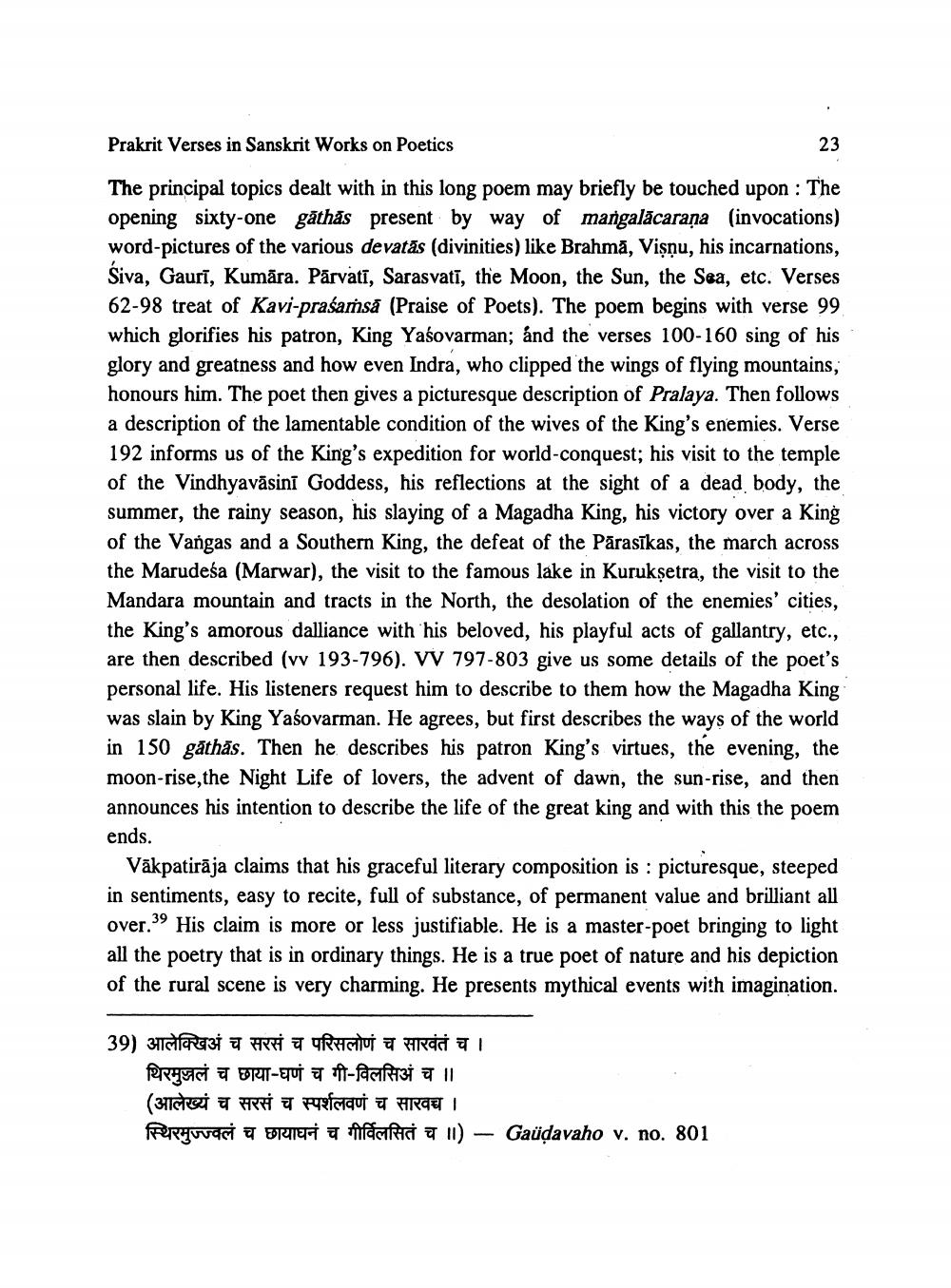________________
Prakrit Verses in Sanskrit Works on Poetics
23
The principal topics dealt with in this long poem may briefly be touched upon : The opening sixty-one găthas present by way of margalācarana (invocations) word-pictures of the various devatās (divinities) like Brahma, Vişnu, his incarnations, Siva, Gaurī, Kumāra. Pārvatī, Sarasvatī, the Moon, the Sun, the Sea, etc. Verses 62-98 treat of Kavi-prašaísă (Praise of Poets). The poem begins with verse 99 which glorifies his patron, King Yaśovarman; and the verses 100-160 sing of his glory and greatness and how even Indra, who clipped the wings of flying mountains, honours him. The poet then gives a picturesque description of Pralaya. Then follows a description of the lamentable condition of the wives of the King's enemies. Verse 192 informs us of the King's expedition for world-conquest; his visit to the temple of the Vindhyavāsinī Goddess, his reflections at the sight of a dead body, the summer, the rainy season, his slaying of a Magadha King, his victory over a King of the Vangas and a Southern King, the defeat of the Pārasīkas, the march across the Marudeśa (Marwar), the visit to the famous lake in Kuruksetra, the visit to the Mandara mountain and tracts in the North, the desolation of the enemies' cities, the King's amorous dalliance with his beloved, his playful acts of gallantry, etc., are then described (vv 193-796). VV 797-803 give us some details of the poet's personal life. His listeners request him to describe to them how the Magadha King was slain by King Yaśovarman. He agrees, but first describes the ways of the world in 150 găthās. Then he describes his patron King's virtues, the evening, the moon-rise, the Night Life of lovers, the advent of dawn, the sun-rise, and then announces his intention to describe the life of the great king and with this the poem ends.
Vākpatirāja claims that his graceful literary composition is : picturesque, steeped in sentiments, easy to recite, full of substance, of permanent value and brilliant all over.39 His claim is more or less justifiable. He is a master-poet bringing to light all the poetry that is in ordinary things. He is a true poet of nature and his depiction of the rural scene is very charming. He presents mythical events with imagination.
39) 31 frazt a via Oficili a Firda al
थिरमुज्जलं च छाया-घणं च गी-विलसिअं च ।। (आलेख्यं च सरसं च स्पर्शलवणं च सारवच । Privaci a i a facilidi a II) – Gaüqavaho v. no. 801




